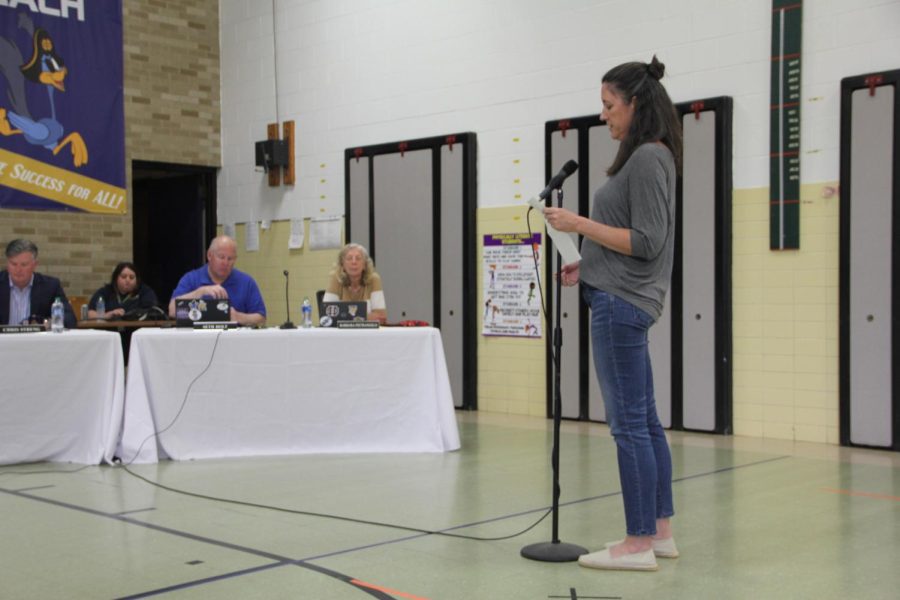CRT controversy goes local
Restoring Ottawa claims GHAPS is disguising critical race theory and leftist propaganda as diversity, equity and inclusion training. Administration disagrees.
ADDRESSING THE BOARD: a Restoring Ottawa members shares their grievances with the Board of Education at the May 9 meeting.
May 24, 2022
Virginia governor Glenn Youngkin won election last fall, in part due to promises to ban critical race theory in classrooms. This win highlights the nationwide controversy regarding the previously obscure legal concept.
Now, the same fight Youngkin took up has come to Grand Haven. A group of concerned parents organized under the name ‘Restoring Ottawa’ is concerned that GHAPS classrooms are teaching it.
Critical race theory, commonly called CRT, is an idea that originated in law schools decades ago to provide a framework for addressing racial inequality in society. It holds that race is primarily a social concept, not biological and that racism is embedded in legal institutions rather than being an individual mindset.
Antiracism, which is often associated with CRT, is the process of actively identifying and opposing racism. It aims to change anything from policy to personal beliefs that perpetuate racism or racist actions.
Restoring Ottawa says they’re dangerous and inherently Marxist, and that racism is created when one focuses on the differences between people.
Their two main goals are keeping CRT or any mention of antiracism out of Grand Haven school classrooms and ensuring that age-inappropriate content, specifically sex and extreme violence, is not in the libraries.
Restoring Ottawa’s aim is to return the local curriculum to what it considers to be the hard facts without any outside interpretation. They think teaching kids a colorblind version of events is more inclusive than teaching them to see the differences between them and their peers, especially when a couple of differences in particular have a negative historic connotation.


